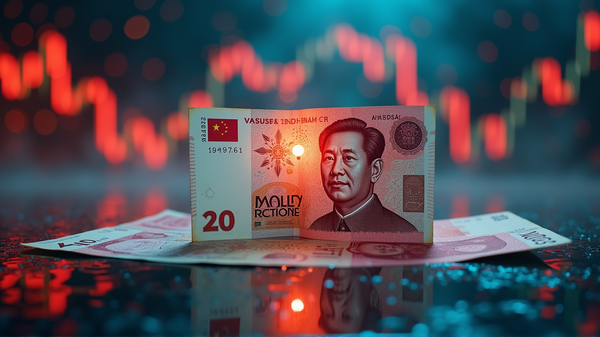China's Venture Capital Plunge: Analyzing the Worst Decline in Over Seven Years
China's venture capital (VC) landscape is experiencing a seismic shift, marked by its most significant decline in over seven years. As the world watches, American businesses and investors are keen to understand the dynamics behind this trend. This article delves into insights from three sources - CNBC, Reddit's r/NBCauto community, and the South China Morning Post - to provide an expansive overview of the current scenario.
The Hard Numbers
According to a recent report from CNBC, venture capital firms in China have experienced a steep downturn. The first half of 2023 has been particularly hard-hitting, with VC deals seeing their slowest pace since the second half of 2016. The gravity of the situation is even more evident when considering the consistent growth and stability that characterized China's VC sector in the preceding years.
Ripples in the Community
A parallel conversation has been unfolding in the online sphere, especially among financial enthusiasts. A Reddit post on the r/NBCauto forum captures the sentiments of many who are closely observing these trends. Commenters expressed concerns over the broader implications of this downturn, highlighting that China's VC situation could have cascading effects on the global economy, especially considering the interconnected nature of modern trade and commerce.
The Larger Picture
To unpack the reasons behind this decline, the South China Morning Post (SCMP) provided a comprehensive overview. Geopolitical hostilities and economic uncertainties have significantly impacted the flow of venture capital in China. The ongoing tension between major economies and their shifting alliances have led to reduced investor confidence, directly influencing investment decisions in the Chinese market.
Additionally, domestic policies have added to the unease. Regulatory crackdowns on major technology companies in China have deterred many potential investors, fearing policy unpredictability. These moves have consequently undermined the confidence that foreign investors previously held in China's burgeoning tech industry.
The American Perspective
For Americans, understanding these shifts is crucial. As China's VC sector grapples with these challenges, there will be repercussions for American businesses and investors. Reduced investments in technology and startups in China can lead to a slowdown in innovation and expansion. Moreover, the startups that previously depended on Chinese VC funding might now look westwards for financial backing. While this may open opportunities for American investors, it also underscores the need for meticulous due diligence.
Furthermore, China's current VC scenario can serve as a lesson. It reiterates the importance of political stability and predictability in policymaking for fostering a healthy investment environment.
Conclusion
China's VC downturn is a testament to the intertwined nature of global politics, economics, and investor sentiments. As the situation continues to unfold, stakeholders around the world, especially in America, will be closely watching and recalibrating their strategies. In an age of globalization, understanding the complexities of a major player like China becomes imperative for informed decision-making on the global stage.




